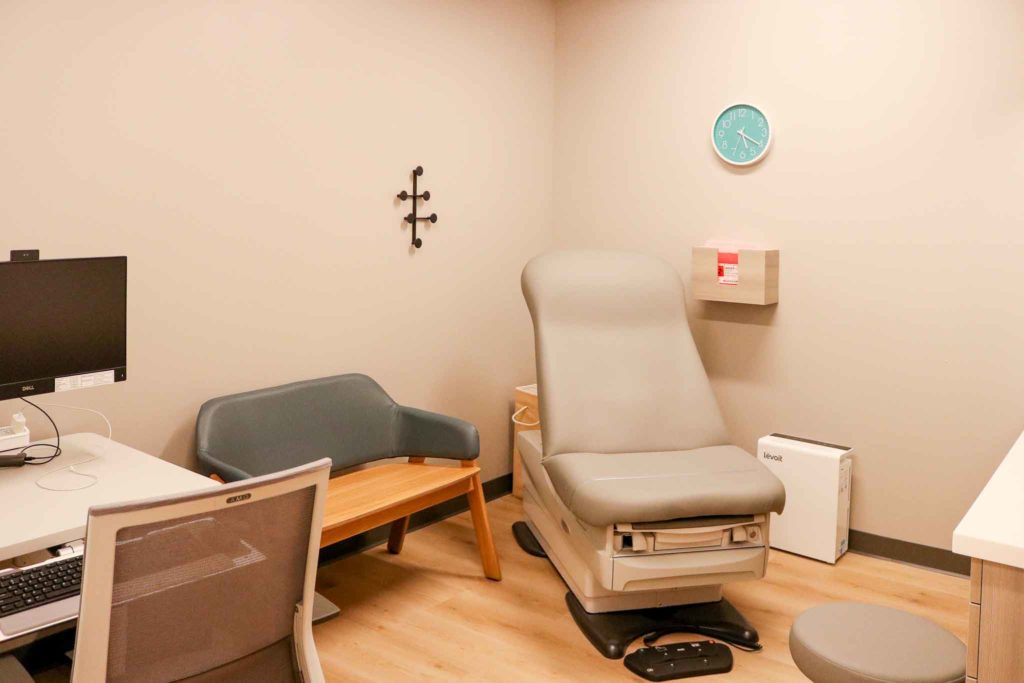4 Tips To Improve Your Mental Health in 2021
2021: the year we all take back our mental health! If 2020 taught us anything, it’s that normalcy can be stripped away in a second. I know I’m not alone when I say that my mental health took a huge hit in 2020. The load of stress that was piled on my shoulders caused a negative impact on my day-to-day life. Little things like holding meaningful conversations and getting enough sleep became so difficult because my brain just wouldn’t shut off, and my overall physical health (because yup, mental health influences our physical health like crazy.) Today I’m sharing 4 tips to improve your mental health in 2021.

I talked with Dr. Natasha Bhuyan at One Medical for some easy tips to improve mental health. One Medical is a patient-focused primary care practice that’s changing the way we look at our healthcare. Their nation-wide offices are beautiful and relaxing and they’re making people fall in love with their doctors office. (I’m a member at One Medical; the first time I stepped into the new patient lobby at the downtown Austin location, I couldn’t believe how beautiful it was!)

The membership program is simple: insurance is accepted, so in-person visits are billed that way. But One Medical has a robust app with no-charge 24/7/365 virtual care, prescription refills, and the ability to message your provider. Plus, you can easily book same-day or next-day in-person appointments. It’s basically everything we’ve ever wanted our medical care to be, plus more. Through the end of May, memberships are 50% off (only $100 for the entire year!) with the code “KELSEY100HEALTH.” Get more info here.
Quick facts about One Medical:
- Patient-focused, technology-driven healthcare
- Most insurance is accepted!
- Free 24/7/365 virtual care, prescription refills, and more
- Gorgeous and inviting nationwide offices
- Membership includes visits at any office in the country (great for traveling!)
- Child-friendly offices with stroller parking and comfortable playrooms for young ones
- No-wait appointments (you don’t have to worry about the office running an hour behind schedule)
- Same-day and next-day appointment booking through the app
- Membership is currently 50% off through the end of May 2021 – book soon!




4 TIPS TO IMPROVE YOUR MENTAL HEALTH IN 2021
This is our time, friends! Exceptional mental health is more accessible than ever, but it’s up to us to claim it for ourselves. I’m feeling excited and empowered to make some small tweaks in my day-to-day life. Here are 4 tips to improve your mental health in 2021. All quotes are from Dr. Natasha Bhuyan at One Medical:
First off: what is mental health?
It encompasses more than you’d think! Try to expand your definition beyond mental illness (like chronic depression, although that’s included.) When you feel stressed by a difficult experience and your shoulders start creeping up to your ears and you can’t think straight…yep, that’s mental health.
“Mental health is a term that encompasses our overall psychological, social, and emotional well-being. When people hear the term mental health, they often think about mental illnesses, such as anxiety or depression. Mental wellness puts the focus on helping people realize their own potential, cope with the challenges they face, and lead a healthy life.”

Why is mental health so important?
“Mental health impacts both how we feel and function. It influences how we see the world and even the decisions we make. If we are not caring for our mental health, this can be detrimental to our overall health and impact work, family or other interpersonal relationships.”
Improving our mental health can truly help us enjoy a healthier, happier life! I’m all about that.

1. Start practicing mindfulness.
“Practicing mindfulness means being present in the moment and being aware of the experience of your 5 senses. This can be done through things like simple breathing exercises (such as box breathing), guided imagery, or meditation.”
One of my favorite ways to think of mindfulness is to just think “mind = full.” Whatever I’m doing, my mind is full of that one thing. It doesn’t have to take hours out of my day to practice this – I can literally do it at any point in the day. Example: when I’m brushing my teeth, I’m aware of the taste of the toothpaste, the feeling of the bristles in my mouth, the sound of the running water. Another favorite mindfulness exercise of mine is starting my day with 10 minutes of meditation. (There are lots of great apps to teach you this, but right now I just use a 10 minute timer and focus on my breath until it goes off.)
2. Talk to your doctor about your mental health – it’s ok to do this!
Some people are afraid to talk to medical proessionals about their mental health; this could be because, in the past, there’s been a negative stigma about being open about our mental health struggles. I am SO thankful for forward-thinking healthcare companies like One Medical that are interested in helping us all improve our mental health.

Prior to a wellness visit (called the Live Well visit at One Medical), patients are sent a survey on areas they want to focus on, as well as specific questions related to mental health.
“Be sure to ask your primary care provider any questions that are on your mind about health. Your PCP wants to support you on our health journey, so don’t feel like you need to hold back. Ask about alcohol use, sleeping habits, sexual health, mood – anything you want.”

3. Pay attention to your sleep
Sleep influences every single part of our waking lives, which is why it’s so important! One of my personal goals for 2021: putting my phone away hours before I actually fall asleep. And it’s really hard to do! Right now I’m winning at this about 50% of the time. But I know that the discipline this new habit requires is always worth it, because when I put my phone away earlier in the day and take the time to wind down for a good night’s sleep, my next day of life is so much more productive, enjoyable, and meaningful. I love Dr. Bhuyan’s thoughts about sleep:

“Sleep is an area that is critical to our health which is often overlooked. It’s important that we all practice good sleep hygiene, which includes going to bed and awaking at the same time. This helps your internal circadian rhythm. Adults should get more than 7 hours of sleep while teens should get more than 9 hours. Practicing mindfulness and stress management can help with restful sleep.
A key tip I recommend is removing electronic devices from the bedroom. This includes phones and laptops. Many people spend hours scrolling aimless on their phone prior to bed. Finally, the bedroom should be reserved only for sleep and sex – not work.”
4. Practice gratitude.
“Reflecting on gratitude has tremendous mental health benefits. People who practice gratitude are found to have lower stress and better mood overall. Practicing gratitude can happen in different ways. Many people have a gratitude journal, in which they write what they are thankful for daily. These can be simple – clean drinking water, nutritious foods, etc. Also try a gratitude box. Every day, write down one thing you are grateful for and place it in the box. If you are ever feeling down, take a moment to review the contents of the box.”
I’ve personally found a huge benefit from my daily gratitude journal practice. (And I use the word “daily” loosely….I don’t get upset if I miss a few days, because that’s not the point of this exercise.) I wrote all about this practice here in How To Keep A Gratitude Journal (+ 60 Free Prompts).
If you don’t have a PCP who is open and interested in helping you improve your mental health, join me at One Medical! Their incredible physicians are forward-thinking and interested in helping you take your mental health back in your own hands. Click here to take advantage of their special membership deal (only $100 for the annual membership, which is 50% off the regular cost) good through the end of May 2021.

This post was sponsored by One Medical; all thoughts and opinions are my own. I hope you love this phenomenal health care brand as much as I do! Thanks for supporting the brands that support So Much Life.
